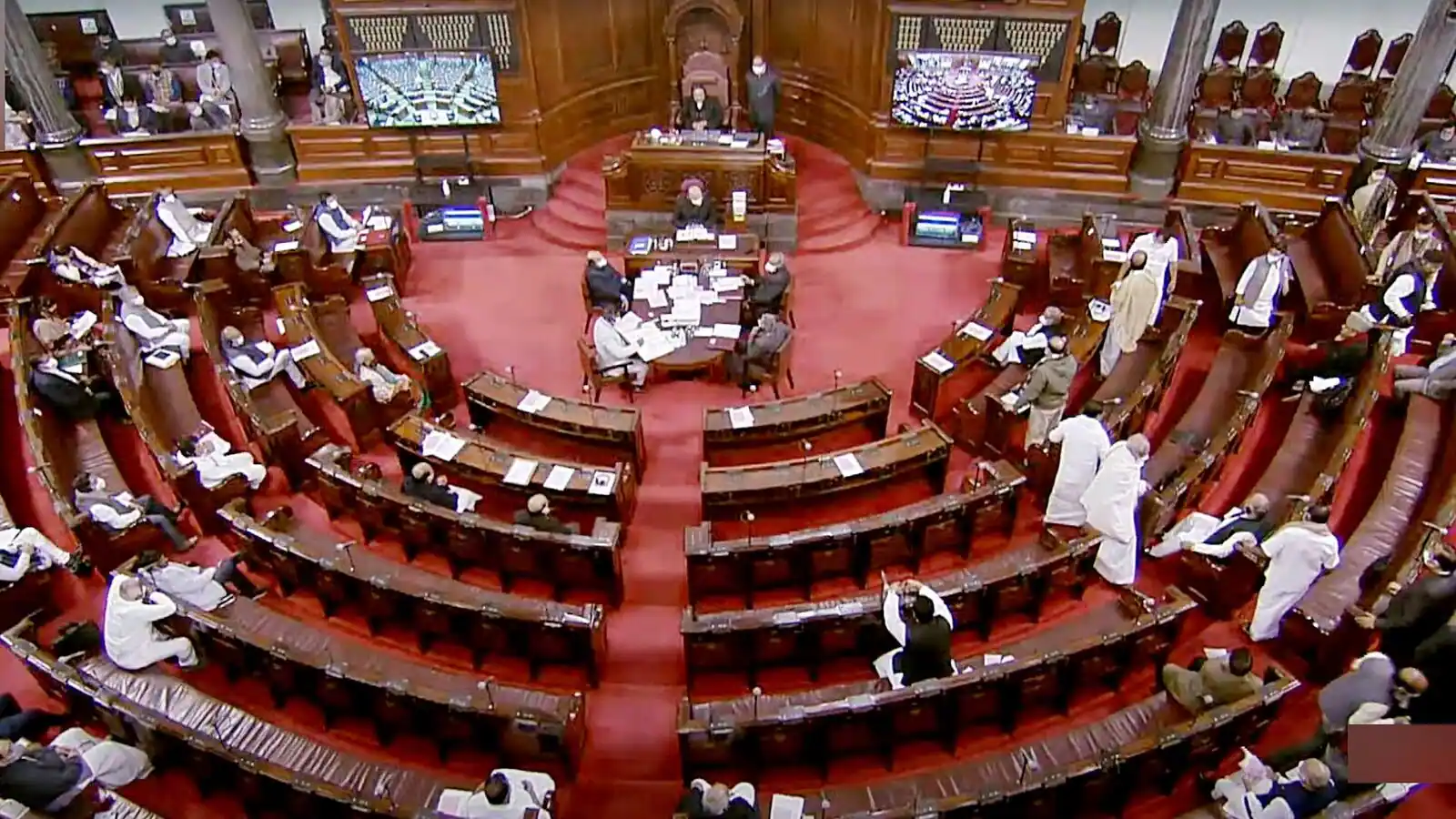While some of them have been asked by the party, a few of them have expressed the desire to contest the elections themselves.
One-third of BJP’s sitting Rajya Sabha members or 32 MPs, including 4 nominated MPs, will retire from the Upper House next year. The maximum number of retirements, 27, will take place on 2 April, 1 on 3 May and that of the 4 nominated members on 13 July. The BJP, as of now has 93 Rajya Sabha members.
Development related to these MPs are important as at least 15 of them, including sitting Union Ministers and senior party functionaries, are likely to contest the Lok Sabha elections.
While some of them have been asked by the party, a few of them have expressed the desire to contest the Lok Sabha elections themselves with the intention to prove that they have support at the grassroots. These MPs include Anil Baluni (Uttarakhand), Rajeev Chandrashekhar (Karnataka), Mansukh Mandaviya (Gujarat), Jagat Prakash Nadda (Himachal Pradesh, Saroj Pandey (Chhattisgarh), Dharmendra Pradhan (Odisha), Ashwini Vaishnaw (Odisha or Rajasthan) and Bhupender Yadav (Haryana).
Out of them, five are Union Ministers—Chandrashekhar, Mandaviya, Pradhan, Vaishnaw and Yadav.
Among the leaders on this list, only Saroj Pandey has contested a Lok Sabha election before and won (Durg Lok Sabha seat in 2014).
This is the second Rajya Sabha term for Nadda, Yadav, Mandaviya and Pradhan. Rajeev Chandrashekhar, who is in his third term as RS MP, contested the initial two as an independent candidate. J.P. Nadda’s tenure as party president will end next year, coinciding with the Lok Sabha election results.
One Union Minister, who is a part of the list of 32 MPs, will not be repeated, party sources indicated.
Among the other leaders, who are not a part of this list, but have retired earlier and are now being considered for a Lok Sabha ticket includes former Union Minister Mukhtar Abbas Naqvi from Uttar Pradesh. Naqvi has been a three-time Rajya Sabha member and has also been a Lok Sabha member from Rampur, Uttar Pradesh in the 12th Lok Sabha (March 1998-April 1999). There is no clarity regarding the candidature of former Union Law Minister Ravi Shankar Prasad, who contested his first Lok Sabha elections in 2019 from Patna Sahib and has been a Rajya Sabha member four times. Prasad, on his part, has developed a perception of being among the most accessible party MPs from Bihar and has spent a considerable amount of time in his seat, especially during floods, festivals and by attending events related to personal celebrations and bereavement.
The notable contenders from that seat, if the party does not repeat Prasad, are Rituraj Sinha, national secretary of the party and managing director at SIS group, and four-time MLA Nitin Nabin, who has earned good points for the party’s performance in the Chhattisgarh elections, where he was the co-in-charge and is being credited for ensuring tickets were given only to winning candidates. Former Bihar Deputy Chief Minister Sushil Modi, whose Rajya Sabha tenure is ending in April, may not be repeated in the Lok Sabha or the Rajya Sabha.
The nominated MPs, whose tenure will end just days after the Lok Sabha elections are declared, include educationist Rakesh Sinha, jurist Mahesh Jethmalani, artist Sonal Mansingh and party leader Ram Shakal. It is not yet known if they will be renominated.
Of the total number of MPs, five who will retire in April, were nominated from Madhya Pradesh. It takes 58 MLAs votes to send one Rajya Sabha member from Madhya Pradesh. This time BJP will be able to send at least two Rajya Sabha members from the state
From Bihar, which needs 41 MLA votes to elect one RS member, the BJP can comfortably send two members, as it has 78 MLAs there, plus 4 MLAs from HAM (Hindustani Awam Morcha) party which is likely to support the BJP’s nominee. Along with Sushil Modi, five more MPs from Bihar belonging to various parties are retiring in April.

